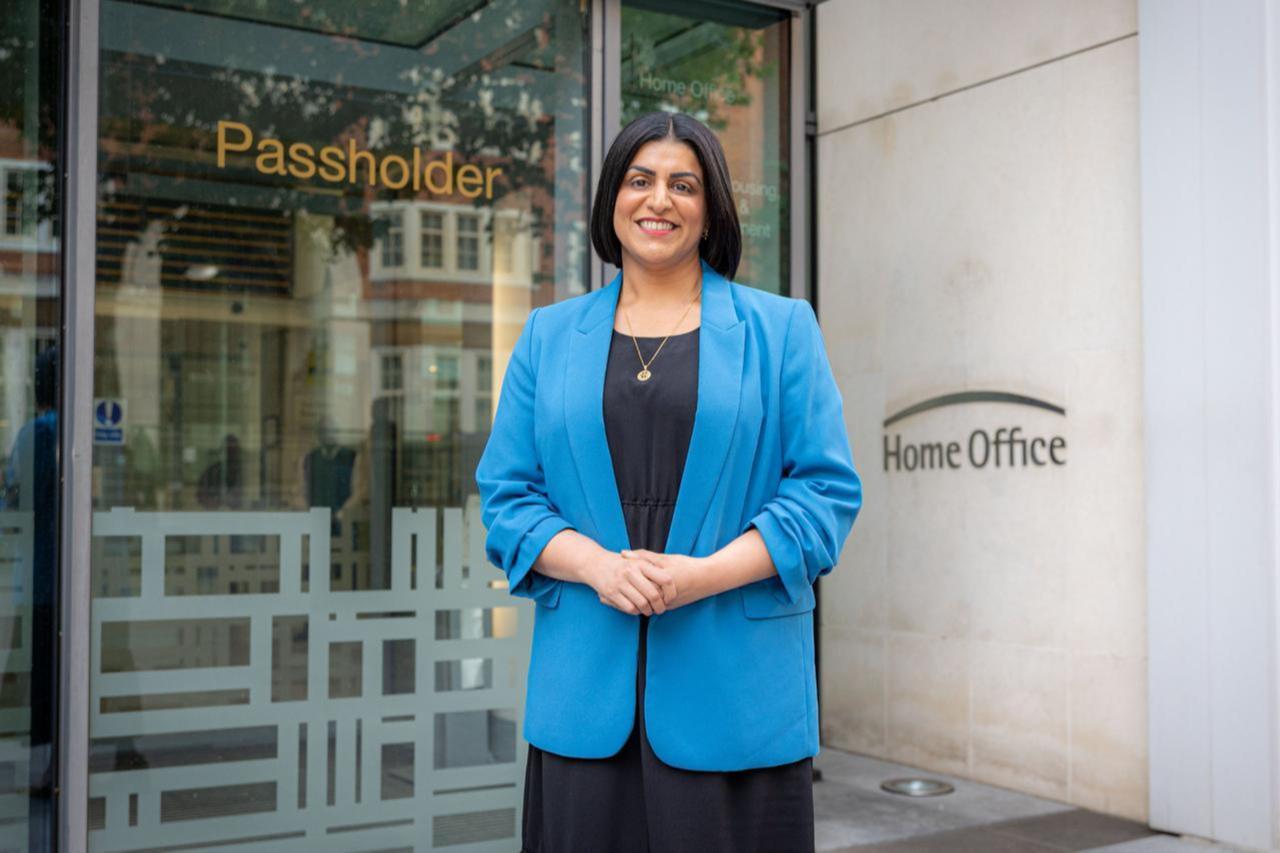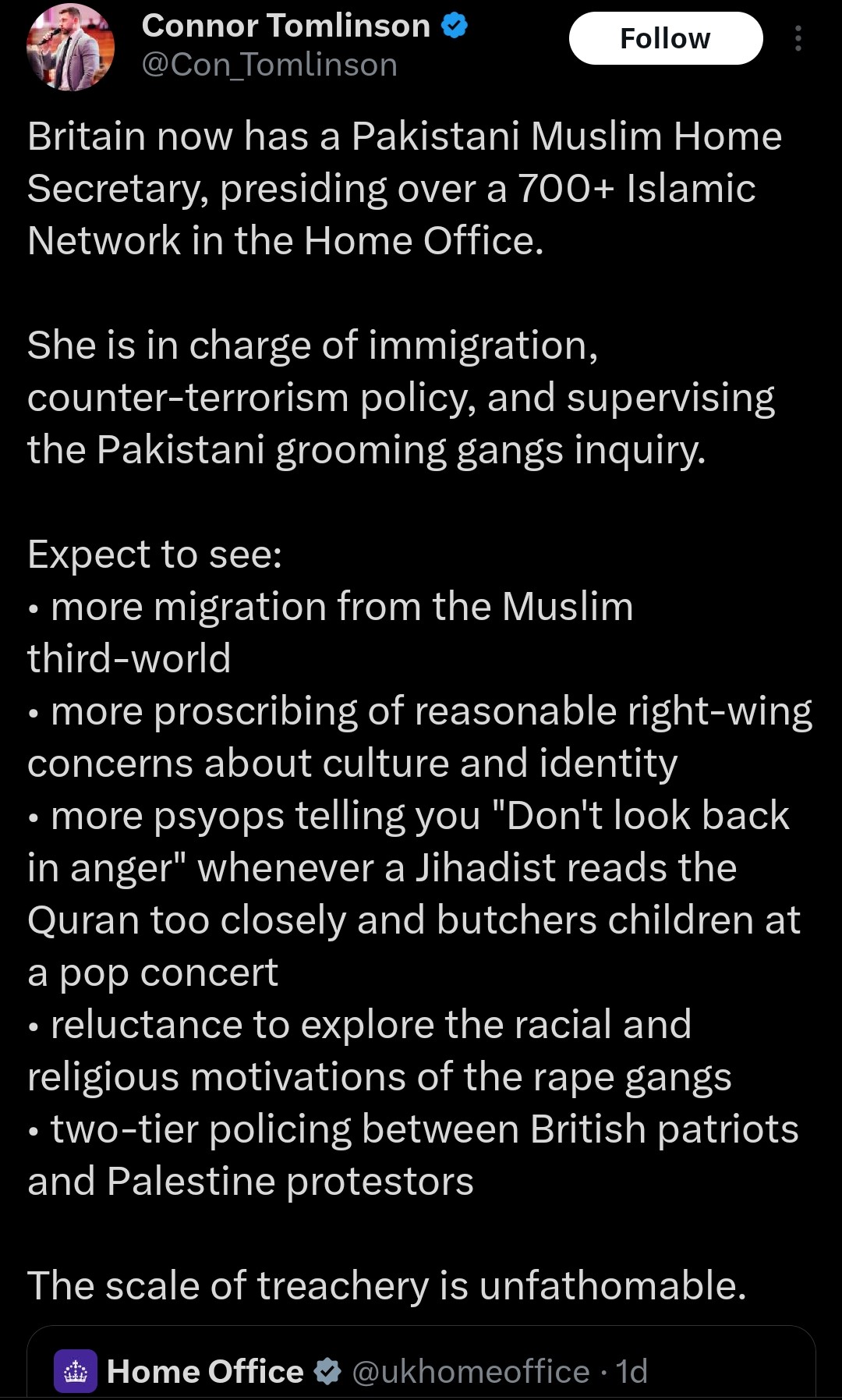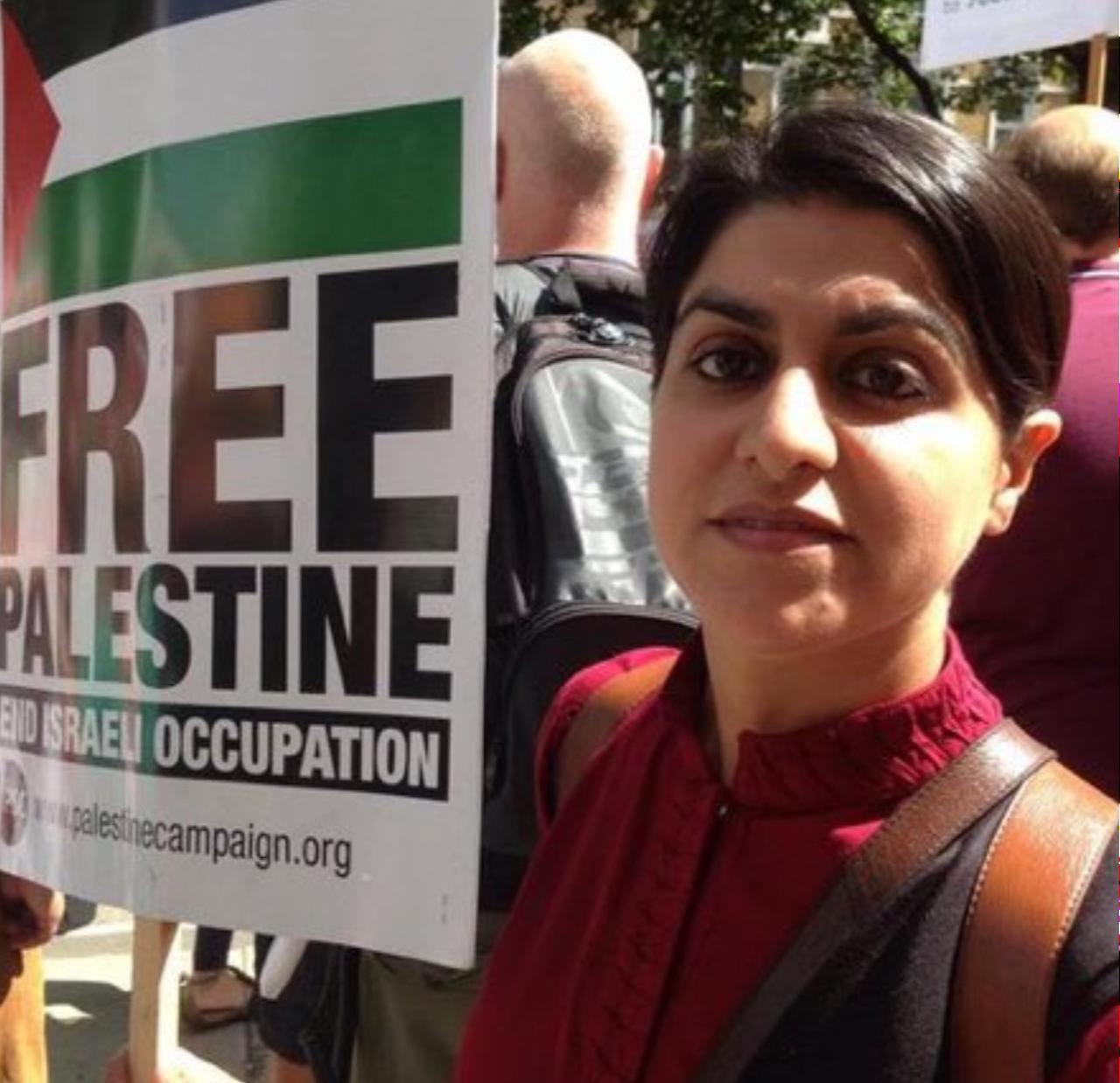
The appointment of Shabana Mahmood as the new U.K. Home Secretary has triggered backlash from far-right circles, primarily due to her Muslim identity. Extremist voices online have circulated her photo in a hijab to incite hate, even though she does not wear one in daily life.
The new appointment was welcomed with the reality of Islamophobia in the U.K., where conspiracy theories such as the “great replacement”—which claims that Muslim immigrants are displacing the native population—have gained popularity.
Mahmood’s new role comes with heightened scrutiny because the Home Office is central to immigration, policing, and counterterrorism policy.
Critics on the far right emphasize her Muslim background, particularly as she will now oversee migration policy and border enforcement. Yet her remit extends far beyond migration, covering policing, domestic security, and the work of MI5.
Born in Birmingham in 1980 to Pakistani parents, Mahmood spent part of her childhood in Saudi Arabia before returning to Britain. She pursued legal studies at Lincoln College, Oxford, and worked as a barrister specializing in professional indemnity cases before entering politics.
Her parliamentary career began in 2010 when she was elected as MP for Birmingham Ladywood, becoming one of the U.K.'s first female Muslim parliamentarians. She held various shadow ministerial positions, including Shadow Financial Secretary to the Treasury and Shadow Minister for Prisons, though she stepped back during Jeremy Corbyn's leadership.
Under Keir Starmer's leadership, Mahmood returned to prominence, serving as Shadow Justice Secretary by 2023. Following Labour's 2024 election victory, she became Justice Secretary and Lord Chancellor, where she implemented early prisoner release programs and advocated for stricter deportation policies.
The woman politician has made history by becoming the first Muslim woman to serve as Britain's Home Secretary following a major cabinet reshuffle.

Mahmood’s appointment also raises questions about representation in British politics. The U.K.’s Muslim population is more than 13 times larger than its Jewish population, yet Jewish politicians have long been visible in senior cabinet roles across governments of both left and right.
Seven of Rishi Sunak’s key ministers were either Jewish, of Jewish descent, or married to Jews, and Starmer’s government has already welcomed new Jewish ministers, including Baroness Gillian Merron.
By contrast, the elevation of a Muslim politician to the Home Office is unprecedented. For many observers, this delay reflects the persistent barriers faced by Muslims in public life, even as Britain’s demographics shift.
While Labour has presented Mahmood’s promotion as a signal of inclusion, the backlash shows how Muslim representation remains politically fraught in ways that differ from other minorities.
Commenting on the reaction, Dilly Hussain, deputy editor of 5 Pillars U.K., noted, “Keep in mind that she is a fully assimilated secular liberal Muslim by most standards. This is no longer about assimilation—the mere existence of Muslims and non-whites is now an issue.”
Meanwhile, Mahmood’s rise has not been free from friction with parts of her own community. During the 2024 general election, pro-Palestine activists mounted a serious campaign to unseat her in Birmingham Ladywood, criticizing Labour’s stance on Israel’s war in Gaza.
Independent candidate Akhmed Yaqoob, running on a pro-Gaza platform, secured over 12,000 votes and narrowed Mahmood’s margin of victory to just 3,400.

Mahmood’s elevation highlights how identity politics continues to shape British public life. For her supporters, she represents progress toward a more inclusive political system. For her critics, she embodies the anxieties tied to migration, security, and Britain’s multicultural identity.
Her story demonstrates the paradox of Muslim political representation in the U.K. Success at the highest level does not shield politicians from hostility, whether from far-right groups questioning their loyalty or from segments of their own community questioning their faith and political choices.
In an interview given in recent months, Humza Yousaf, former Prime Minister of Scotland, revealed that he bitterly remembers his father telling him when he was a child, “Be ready, because they could deport us at any moment (because of our identity).”
Despite being a parliamentarian who had served as prime minister of Scotland, he explained that he had only recently come to understand and feel the meaning of his father's past words.
A user with many followers wrote: 'The U.S. understands she is an Islamic fundamentalist and is considering what intel can or cannot be shared with the British Home Secretary...'
These campaigns are not isolated. Similar disinformation played a role in violent riots in Southport, U.K., where false claims linked a stabbing incident to a Muslim migrant. The riots led to mosque attacks and heightened tensions. High-profile figures, including Elon Musk, contributed to the hysteria by amplifying Islamophobic content to millions of followers, reinforcing the narrative that diversity poses an existential threat to European society.
The amount of Islamophobic and misogynistic comments directed toward Mahmood since her appointment as Home Secretary is truly disturbing.
However, now that she's in office, everyone will see how she will perform her duties.